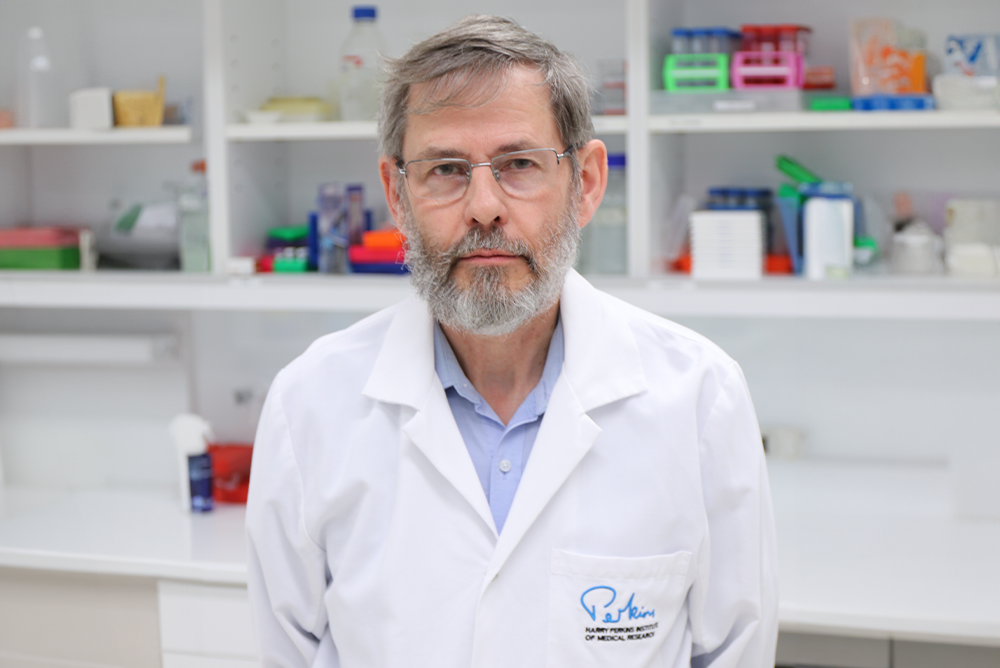

News

Screening needed for couples wanting children to end “genetic roulette”
Tuesday February 18, 2025
- $20 million study supports a government-funded screening scheme
- Information and Q&A session at Perkins for GPs and couples on 27 February
- 90% of at-risk parents have no family history of the condition
Researchers say the results of an Australia-wide genetic testing project demonstrate the need for a government-run scheme to provide screening for all Australian couples who want to have children.
Almost one in 50 couples who took part in the groundbreaking $20 million study, co-led by Harry Perkins Institute of Medical Research geneticist Emeritus Professor Nigel Laing AO, were found to have an increased risk of passing on a serious or fatal recessive genetic disease to their children.
The Mackenzie’s Mission research project tested 9107 couples from every Australian state and territory for mutations in 1,300 genes associated with recessive diseases to see if the parents had an increased chance of having a child with one or more of about 750 genetic conditions.
More than 1,300 couples in the study were from WA, from city, regional and even remote areas, helped by the services of the Royal Flying Doctor Service.
From the nationwide testing, 175 couples (1.9 per cent) were found to be at an “increased chance” – a risk of one in four – of having a child affected by a genetic condition because both parents carried the same recessive gene.
Three quarters of those couples took this on board in deciding about having children, including taking the route of using IVF and selecting embryos that were not affected by the genetic condition.
Project researchers say that nearly 90% of at-risk couples have no family history of the condition and have no idea that they might give birth to an affected baby, which is why Prof Laing (pictured) has dubbed it “playing genetic roulette”.
To discuss the results of the research and the roadmap towards a taxpayer-funded national screening program, an expert panel will lead an hour-long information and Q&A session for GPs and couples at the Perkins Institute on Thursday 27 February.
The experts on the panel will include Prof Laing, Perth GP and Associate Professor Lucy Gilkes, who is clinical senior lecturer of General Practice at UWA, and genetic counsellor Samantha Edwards, the WA project manager of Mackenzie’s Mission.
The free event will start at 6.30pm in the McCusker Auditorium at the Perkins Institute in Verdun St, Nedlands. You can register your free space.
Currently, only the “big three” reproductive genetic carrier screening conditions are on the Medicare Benefits Schedule: spinal muscular atrophy (SMA), cystic fibrosis and fragile X syndrome. Screening for these conditions were listed in November 2023.
However, the national screening study found that 80% of the couples who had an increased chance of having children with a severe genetic condition were carriers for conditions other than the “big three”, underscoring the need for more widespread screening to help with family planning.
Mackenzie’s Mission was named after Mackenzie Casella, whose parents Rachael and Jonathan ran a campaign for routine genetic testing after she died in 2017 as a months-old baby from SMA.
It was funded by the Federal Government’s Medical Research Future Fund through Australian Genomics.

